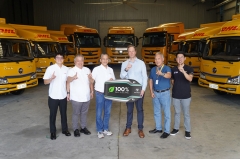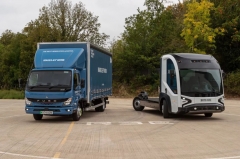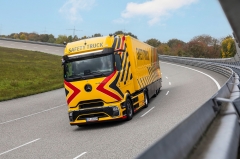
Kia held a groundbreaking ceremony for their dedicated electric Purpose-Built Vehicle (PBV) plant in South Korea on April 11, 2023, following its announcement in May last year.
The new facility, situated in Hwaseong, Gyeonggi Province, is scheduled to commence mass production of battery-electric Purpose-Built Vehicles (PBVs) in the second half of 2025. Kia anticipates that the factory will have an initial annual capacity of 150,000 vehicles in its first full year of operation, with the flexibility to expand as per market demands in the future.
Although the unveiling of Kia's first PBV model is slated for 2025, the company has already highlighted that its PBV lineup is designed to cater to diverse business requirements such as delivery services, ride-hailing, and business-to-business transactions, tailored for medium-to-small business enterprises. In the future, Kia envisions developing larger PBVs tailored for logistics, fresh food delivery, and multi-seat shuttles. Essentially, PBVs represent the electric equivalent of commercial vehicles.
Commercial vehicles carry many industries on their shoulders. An added benefit to shifting commercial vehicles away from fossil fuels will be the decarbonization of this specific sector.

Kia is set to invest approximately $758 million (equivalent to one trillion won) in acquiring 99,000 acres of land for their state-of-the-art smart factory in Hwaseong. The company plans to implement cutting-edge manufacturing technologies, including the "cellular method," which enables the production of vehicles based on diverse customer demands, at their new PBV plant.
The "cellular method" employed in Kia's manufacturing process involves organizing machines or workstations that produce similar products or parts into cohesive groups. This strategic arrangement is aimed at minimizing material and product transportation distances during production, resulting in reduced downtime, lower costs, and increased overall productivity.
The end goal for all of this effort? The Hyundai Motor Group is aiming to become one of the world's top 3 EV manufacturers by 2030 through the combined sales of Hyundai Motor, Kia, and Genesis electric models.







